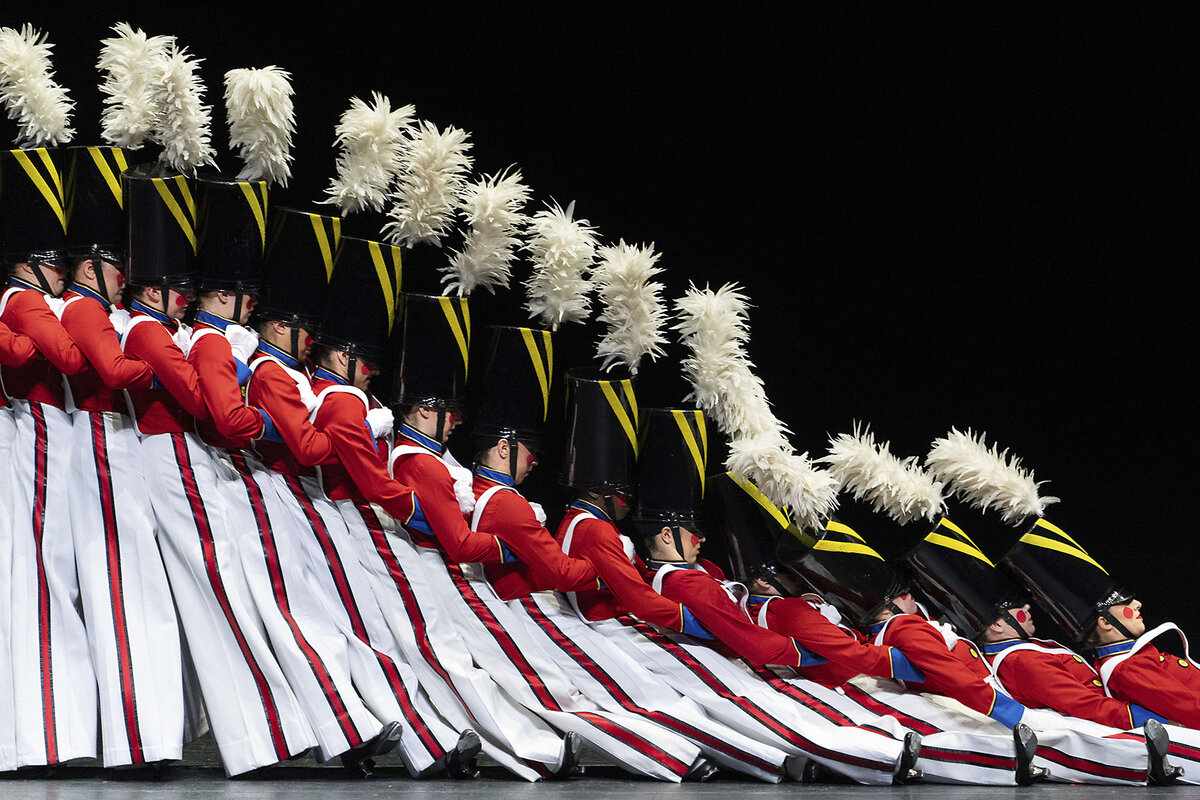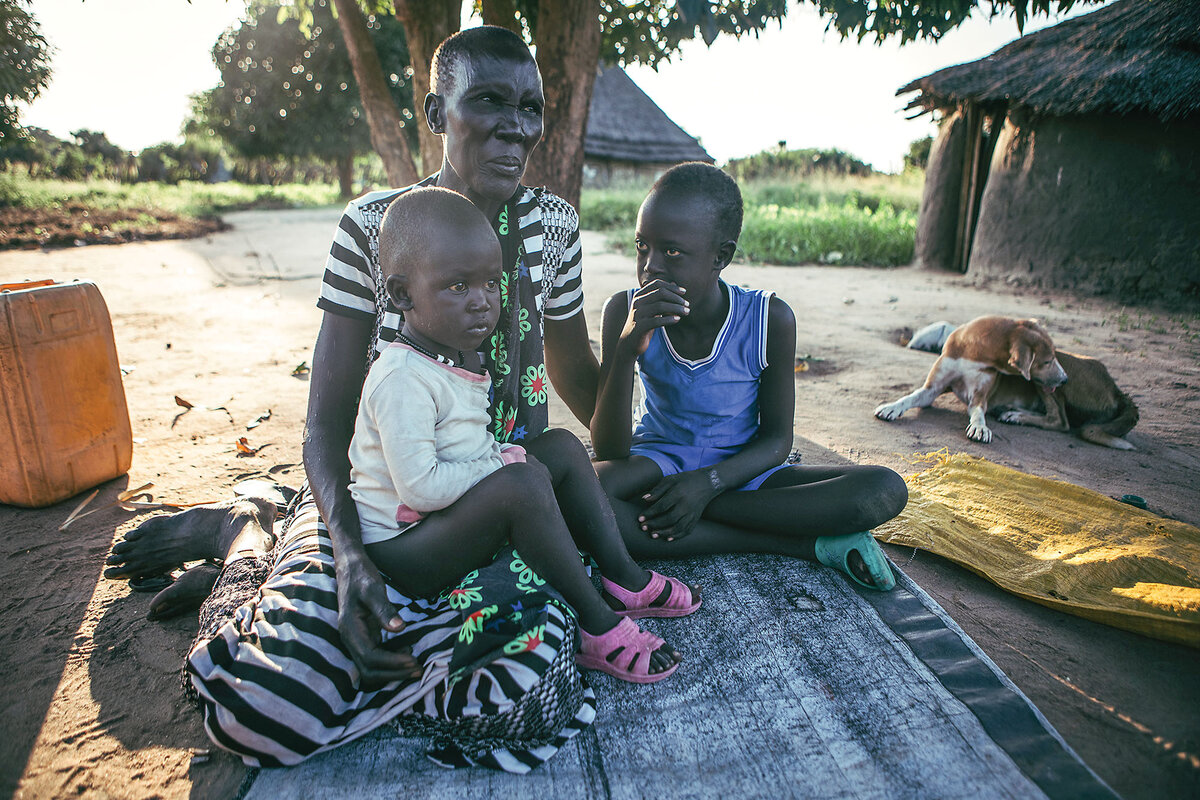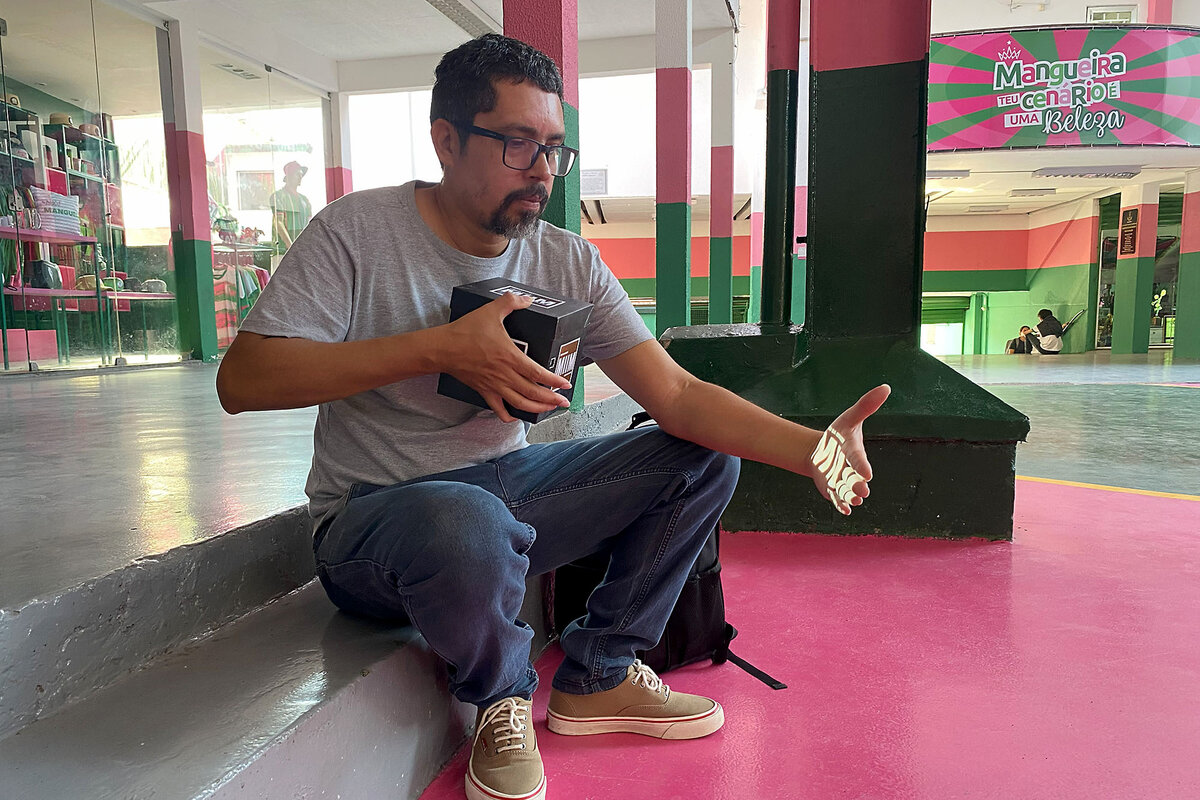• Georgia elects pro-Russia president: Former soccer player Mikheil Kavelashvili has become president of Georgia as the ruling party tightens its grip. The development is seen as a victory for Russian influence.
• FBI informant in Biden case: Former FBI informant Alexander Smirnov pleads guilty to lying about a bribery scheme involving President Joe Biden and his son Hunter Biden.
• Russia sanctions: The European Union adopts its 15th package of sanctions against Russia over the Ukraine invasion. It includes tougher measures against Chinese entities and more vessels from what is often known as Moscow’s shadow fleet.
• ABC settles Trump lawsuit: ABC News agreed to give $15 million to United States President-elect Donald Trump’s presidential library to settle a lawsuit over comments that anchor George Stephanopoulos made on air.
• Frances Perkins monument: President Joe Biden signs a proclamation establishing a national monument in Newcastle, Maine, honoring Frances Perkins, the first woman appointed to serve in a presidential Cabinet and a driving force behind the New Deal.

Why is Christian Science in our name?
Our name is about honesty. The Monitor is owned by The Christian Science Church, and we’ve always been transparent about that.
The Church publishes the Monitor because it sees good journalism as vital to progress in the world. Since 1908, we’ve aimed “to injure no man, but to bless all mankind,” as our founder, Mary Baker Eddy, put it.
Here, you’ll find award-winning journalism not driven by commercial influences – a news organization that takes seriously its mission to uplift the world by seeking solutions and finding reasons for credible hope.
Explore values journalism About usMonitor Daily Podcast
- Follow us:
- Apple Podcasts
- Spotify
- RSS Feed
- Download
 Mark Sappenfield
Mark Sappenfield
From the Middle East to Europe, one of the biggest questions today is: How many Syrians who fled their homes during the civil war will return? Dominique Soguel offers the first glimpses of an answer today.
My attention turns to the al-Khansour family, who stayed in Syria, resettling in the city run by the rebels who now control the country. It is a slice of what Syria was – and perhaps could be.
Already a subscriber? Log in
Help fund Monitor journalism for $11/ month
Monitor journalism changes lives because we open that too-small box that most people think they live in. We believe news can and should expand a sense of identity and possibility beyond narrow conventional expectations.
Our work isn't possible without your support.
News briefs
Today’s stories
And why we wrote them
( 7 min. read )
As the barriers to movement into and inside Syria have come down, Syrians are racing to reunite with loved ones and visit their former homes, or what is left of them. It is an emotional time, and the destruction they are finding is often vast.
( 4 min. read )
As the Pacific heats up, South Korea is heading into what may be a divisive and drawn-out impeachment battle, casting uncertainty over its relationships with critical security allies.
( 5 min. read )
A spate of unusual drone sightings in the U.S. is raising questions about oversight. Shooting down drones is illegal unless they are deemed a national security threat. But many wonder if there’s a lack of options beyond that. Just what should be done?
The Explainer
( 5 min. read )
The Department of Government Efficiency is actually an advisory body. President-elect Donald Trump is an ally, but the effort to cut the size of the federal bureaucracy will face some hurdles.
Difference-maker
( 6 min. read )
When natural disasters strike in South Sudan, villagers with disabilities are particularly at risk. In one region, people are learning how to prepare for bigger floods.
( 5 min. read )
What makes a museum? In long-marginalized neighborhoods of Rio de Janeiro, locals are dictating how their story is told through the emergence of informal, vibrant community museums.
The Monitor's View
( 2 min. read )
A common complaint about Germany is that it lacks a “dare to fail” culture for innovation. On Monday, German politicians helped counter that perception. The country’s unpopular leader, Olaf Scholz, gladly led a vote in parliament to dissolve his government.
One reason for the downfall of his three-party coalition: The world’s fourth-largest economy has lost its competitive edge in manufacturing, reflected in Europe’s biggest carmaker, Volkswagen, planning its first factory closures in its 87-year history.
A snap election is expected Feb. 23. The campaign will provide a window on how a country struggles to make a mental shift to become more creative and more open to taking risks and developing new ideas as it addresses a new fear: deindustrialization.
Often enough, Germany’s 84 million people have heard promises on the many ways to speed up innovation, from lessening red tape to improving universities. “My goal is for Germany – and especially our industry – to be at the forefront of future technologies,” such as quantum computing, said Chancellor Scholz in October. “The reality, however, is that too little has happened for too long.”
He cited the fact that the United States invests three times as much in venture capital as does Germany. “This cannot continue,” he said. “Only with a greater affinity for risk can we tackle our major projects.”
Germany has a solid record in innovation. It re-created itself after World War II, boosted the economy of east Germany after reunification in the 1990s, and quickly reduced its dependence on Russian gas after the invasion of Ukraine. It also has nearly half of the world’s “hidden champions,” or the types of small manufacturing firms that provide well-engineered goods to big companies.
This has given hope that the next government, perhaps led by center-right leader Friedrich Merz, will make a new try for deep changes. Mr. Merz told a radio station in November that Germany needs a “new political course that tackles the root of the problems.”
Much of Europe looks to its largest economy to revive its techno-creativity. Welcoming the failure of a governing coalition to make room for a new one sets a good example for just the kind of innovative spirit that the economy needs.
A Christian Science Perspective
Each weekday, the Monitor includes one clearly labeled religious article offering spiritual insight on contemporary issues, including the news. The publication – in its various forms – is produced for anyone who cares about the progress of the human endeavor around the world and seeks news reported with compassion, intelligence, and an essentially constructive lens. For many, that caring has religious roots. For many, it does not. The Monitor has always embraced both audiences. The Monitor is owned by a church – The First Church of Christ, Scientist, in Boston – whose founder was concerned with both the state of the world and the quality of available news.
( 4 min. read )
As we turn to a spiritual perspective based on Jesus’ teachings and healing works, we see more of how goodness is a permanent quality of our lives.
Viewfinder

A look ahead
Thank you for spending time with us today. Please come back tomorrow for a charming holiday story about a new musical production celebrating 19th-century Swedish seagoing knitters, called “sweater dears.” When a choir conductor skeptically asked, “Shall we sing about some old ladies going to Stockholm selling cardigans?” the answer was an emphatic yes.









